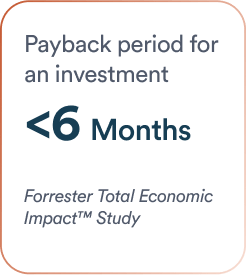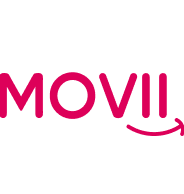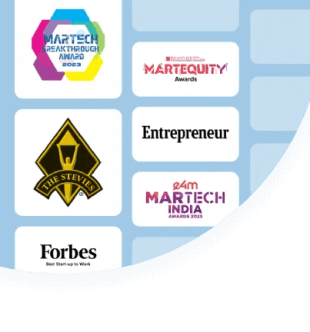Social distancing has forced people to look for alternative ways to stay connected. It has gotten to the point where users the world over are exploring new apps to help them stay socialized digitally.
To explore the impact of this on the mobile industry, and more specifically on social media apps, we spoke to Roland Ros, the founder of KUMU, and Stanley Chan, the Asia Pacific Head of Technology Partners at Amazon Web Services.
This virtual panel was hosted by Ketan Pandit, Global Partner Marketing here at CleverTap and the discussion centered around social media apps and how they help people stay connected and sane as they shelter in place. The webinar also covered how technology partners are rising to the occasion and supporting the surge in demand for these social media platforms.
You can watch the complete on-demand webinar here, or continue to read a summary of the main takeaways discussed.
They took a deep dive into key issues including:
- How social apps are becoming more relevant in the era of social distancing
- How to better understand user behavior and maintain empathy with customers
- What infrastructure is needed for growth and to ensure business continuity
1. The Impact of COVID-19 on Mobile Businesses
A recent report from App Annie highlights that with most countries going into lockdown, app usage has gone up nearly 20%. And some countries like China — one of the first nations affected by the pandemic — saw a 30% increase in time spent on apps and games.*
And we’re not just talking about apps that help you stay connected or share updates. Categories such as health and fitness, education, social good, mental health, relaxation, and (of course) media and entertainment have also seen a massive leap in usage.
- Fitness apps alone have seen a 30% increase in usage over the last quarter.
- Streaming media apps are growing at 12-15%.
- Mental well-being apps are seeing a 3x growth.
- Social engagement apps like Houseparty have grown by 3,000%
For social media apps, people are moving away from individualist, self-focused content to more pro-community content such as: free resources, government updates, free support groups, and even outreach to the less fortunate. All these are emerging as key areas where social media apps are playing a huge role.
2. Changes in User Behavior and Engagement Patterns
Suffice to say, COVID-19 has greatly impacted the way users behave and engage with brands. This has led to brands altering the way they reach out to users and re-evaluating the budgets needed to build valuable customer experiences, especially for millennials and Gen Z.
Roland spoke about the high engagement generated by educational livestreams trending on the Kumu app — particularly content around mental health and social health. The app has transformed into a supportive hub where you can meet people who understand you. And creating authentic community experiences is sorely needed as the world copes with the problems that quarantine and isolation bring about.
With whole swaths of users experiencing the same thing, empathy is bringing people closer together. Now, questions like “How do we keep ecommerce going for essential items and also help out frontliner workers?” are being answered. Motivational triggers such as virtual gifts are being explored by many users.
3. The Need for Reliable Technology and Partners, Now More Than Ever
As Stanley stated, “To keep going during this crisis, businesses need somebody to have their back in terms of flexibility, scalability, and dependability.“
There are 3 key points that organizations should focus on right now:
- Protecting employees and customers
- Securing business continuity
- Transforming and becoming future proof
This pandemic is giving rise to new trends and use cases. Organizations are looking for partners with capabilities that facilitate and support remote working, machine learning, big data analysis, and high performance computation.
Retail and a lot of B2C businesses are expanding into the area of remote user access. Looking for ways to engage customers digitally, they intend to broaden their ecommerce services with virtual assistance and chatbots. And with everything being digitally driven, businesses are mostly facing challenges around acquiring new customers, ensuring retention, and keeping a steady cash flow.
4. Welcome to the Post-Pandemic Era
Social distancing and the response to this new normal we’re all experiencing has helped fuel the widespread acceptance and adoption of digital systems — from mobile payment platforms to in-app purchases, from remote work tools to contact-free deliveries.
Roland believes that all this will continue to change and adapt over the next five to six years.
On a similar note, Staney shared that many businesses are making use of innovative technology to engage users, moving away from approaches that were not working. This leads to the adoption of cloud-based infrastructure services and SaaS applications that fulfill the need for agility and allow businesses to innovate in a cost-effective manner.
Quoting Dr. Seuss, Stanley shared: “When something bad happens you have three choices. You can either let it define you, let it destroy you, or you can let it strengthen you.”
It’s a tough time for everyone and the best thing you can do as a marketer is to adapt to the changes and ensure you’re providing the best customer experience.
Mrinal Parekh 
Leads Product Marketing & Analyst Relations.Expert in cross-channel marketing strategies & platforms.
Free Customer Engagement Guides
Join our newsletter for actionable tips and proven strategies to grow your business and engage your customers.















































